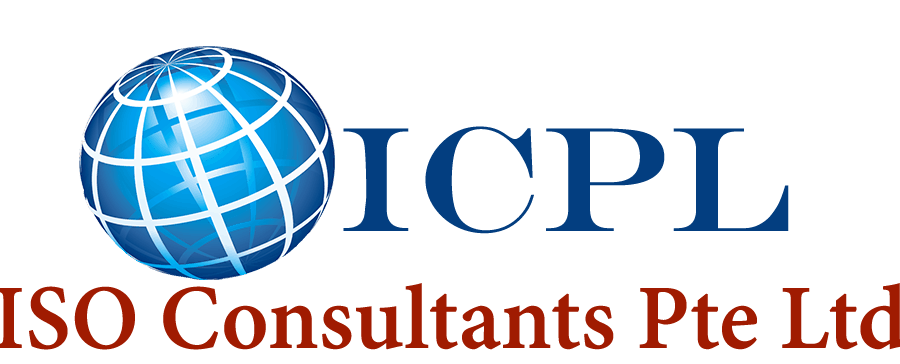ISO 37001 - ANTI-BRIBERY MANAGEMENT SYSTEM STANDARD
ISO 37001 is intended to help an organisations in Singapore to implement an effective anti-bribery management system. The requirements of internationally recognized good practice are taken into account. It is applicable to small, medium and large organisations in the public, private and voluntary sectors.




Contact
- ISO Consultants Pte. Ltd. 30 Petain Rd, Singapore 208099.
- +6585993818
- info@isoconsultant.sg
Brochures
View our 2020 ISO 37001
brochure for an easy to read guide on all of the services offer.
CONSULTING STAGES FOR ISO 37001 IN SINGAPORE
- This is the first step in the consulting process, where the consultant will gather information about the organization and its current anti-bribery practices.
- This includes a review of the organization's policies and procedures, as well as interviews with key stakeholders. The consultant will also assess the organization's risk profile, culture, and operations to determine the scope of the project.
- The purpose of this step is to get a good understanding of the organization's current state and to identify any areas where improvement is needed.
- Once the initial assessment is complete, the consultant will perform a gap analysis to identify any differences between the organization's current anti-bribery practices and the requirements of the ISO 37001 standard.
- This step is critical in ensuring that the organization is aware of any areas where it needs to improve its anti-bribery management system.
- Our consultant will provide recommendations on how to close any gaps that are identified, and will work with the organization to develop a plan of action to address these areas.
- Our consultant will assist the organization in developing the necessary policies, procedures, and forms to meet the requirements of the ISO 37001 standard.
- This includes the development of an anti-bribery policy, procedures for identifying and reporting incidents of bribery, and forms for reporting suspected bribery.
- Our consultant will work with the organization to ensure that the documentation is comprehensive, well-structured, and easily understandable.
- Once the documentation is complete, the consultant will provide guidance to the organization in implementing the anti-bribery management system.
- This includes training employees on the policies and procedures, conducting internal audits to ensure compliance, and implementing corrective actions when necessary.
- Our consultant will also work with the organization to establish a system for ongoing monitoring and improvement.
- Once the anti-bribery management system has been implemented, the consultant will assist the organization in preparing for a certification audit.
- The certification audit is conducted by a third-party auditor to verify that the organization's anti-bribery management system complies with the ISO 37001 standard.
- Our consultant will work with the organization to ensure that all necessary documentation is in place, and will provide support during the certification audit process.
- Our consultant will provide ongoing support to the organization to ensure that the anti-bribery management system remains effective and is continually improved.
- This includes regular internal audits, monitoring of changes in the organization and its operations, and updating the anti-bribery management system as necessary.
- Our consultant will also provide guidance to the organization on how to maintain its certification, including preparing for re-certification audits.
ISO 37001 - EDG GRANT FOR SINGAPORE BUSINESS'
Enterprise Development Grants (EDG) are grants provided by the government of Singapore to help organizations improve their competitiveness and capability. These grants are offered by Enterprise Singapore and provide funding support for activities such as consultancy, training, and certification projects.
Here are some of the benefits of getting an Enterprise Development Grant (EDG) for ISO 37001 in Singapore:
EDG GRANT PROCESS IN SINGAPORE
The first step in the process is to assess whether your organization is eligible for the EDG. This typically involves evaluating your company's size, revenue, and other criteria to determine if you meet the eligibility requirements set by Enterprise Singapore. Some of the common eligibility criteria include:
- Company size: Your company must have a minimum of 30% local shareholding and fewer than 200 employees.
- Annual sales turnover: Your company's annual sales turnover must not exceed SGD100 million.
- Type of project: The project must be related to improving your organization's competitiveness and capability.
If your organization is eligible for the EDG, you will need to submit an application. This typically involves providing detailed information about your organization and the project you are proposing, as well as your plans for implementation. This information typically includes:
- Company profile: Information about your organization, including its history, products and services, and market position.
- Project details: A description of the project you are proposing, including the objectives, timeline, budget, and expected outcomes.
- Implementation plan: A detailed plan for how you will implement ISO 37001, including the resources you will need, the timeline for completion, and any potential risks or challenges.
Once your application is submitted, it will be reviewed by Enterprise Singapore. During this review, Enterprise Singapore will assess your organization's capability and the feasibility of the project. If your application is approved, you will receive a letter of approval from Enterprise Singapore.
After your application has been approved, you can begin the implementation process. This typically involves working with a consultant or certification body to implement ISO 37001, as well as preparing for the certification audit. This typically includes:
- Implementing anti-bribery and corruption management systems: This involves developing policies, procedures, and systems to manage bribery and corruption risks.
- Conducting risk assessments: This involves identifying and assessing the risks of bribery and corruption in your organization and taking steps to mitigate these risks.
- Training employees: This involves providing training to employees on anti-bribery and corruption policies and procedures, as well as their roles and responsibilities in preventing bribery and corruption.
Once you have completed the implementation process, you will undergo a certification audit. This audit will assess whether your organization has met the requirements of ISO 37001 and determine whether you are eligible for certification. This typically involves:
- Documentation review: The auditor will review your anti-bribery and corruption management system documentation to ensure it meets the requirements of ISO 37001.
- Site visit: The auditor will visit your organization to observe the implementation of your anti-bribery and corruption management system and assess its effectiveness.
- Interviews: The auditor may also conduct interviews with employees and other stakeholders to gather additional information about your anti-bribery and corruption management system.
After your organization has been certified, you can submit a claim for reimbursement of the eligible costs. This typically involves providing proof of expenses, such as receipts and invoices, to Enterprise Singapore. This can include expenses related to consultancy fees, certification fees, and training costs.
